10:16
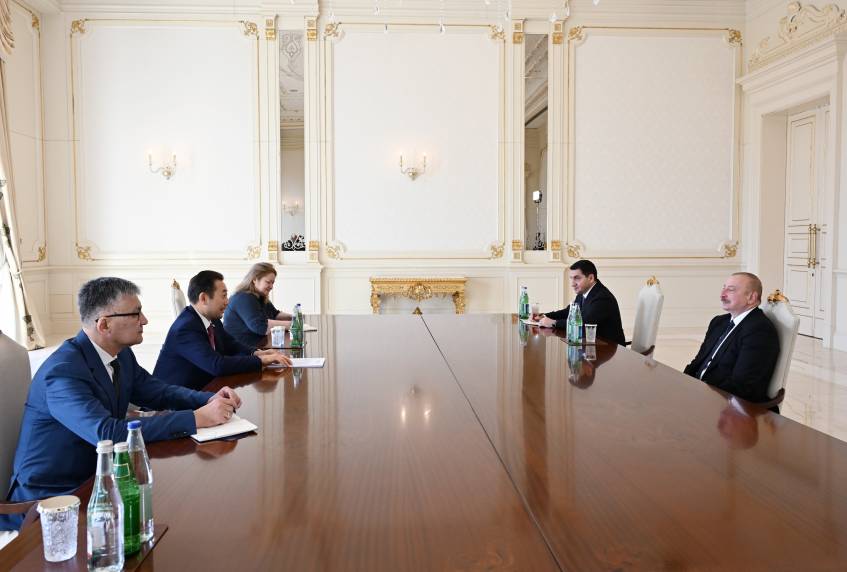
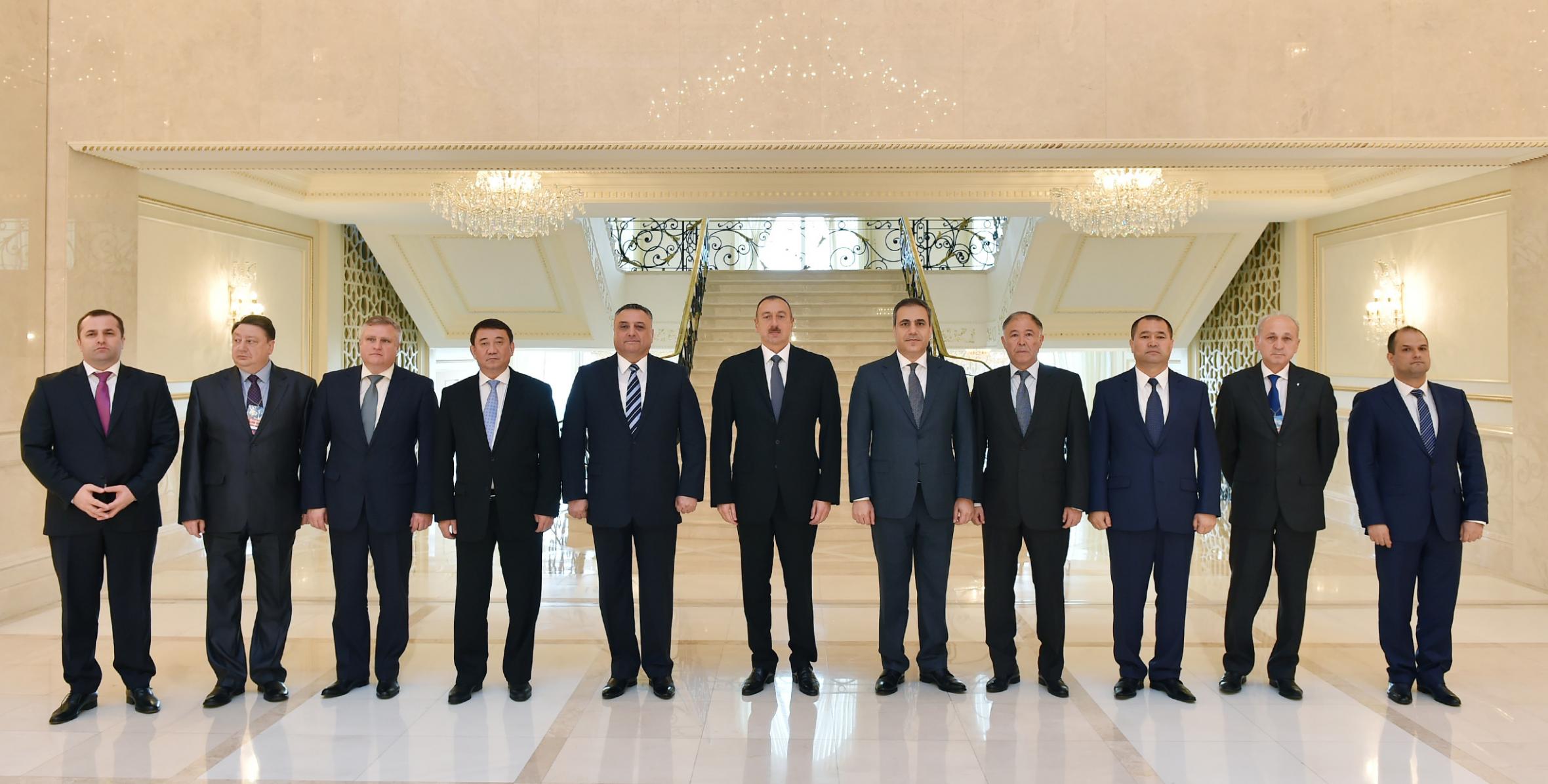
President of the Republic of Azerbaijan Ilham Aliyev has received participants of the 18th meeting of the Conference of Intelligence Agencies of Turkic-speaking States.
The head of state addressed the meeting.
President of the Republic of Azerbaijan Ilham Aliyev said:
- A regular conference of heads of intelligence agencies of Turkic states starts in Baku today. My greetings to all of you. I also want to note that the conference is attended by the heads of security services of our partner countries. I am glad that this event also brings together representatives of friendly states that are not members of the Cooperation Council of Turkic States. This is a good indicator of multifaceted and multilateral cooperation, and I am sure that the discussions and exchange of opinions that will occur in Baku over the coming days – today and tomorrow – will be useful, contribute to further interaction between intelligence agencies of our countries, facilitate greater coordination and strengthen efforts to ensure the national security of our states.
Azerbaijan, as is the case in your countries, pays great attention to the strengthening of security and mitigation of risks. I must say that there are no potential threats and risks within the country. But of course, we are in a region where there is always a very clear need to keep track of the processes occurring in the region and ensure the security of our country and people to the maximum possible extent, so that Azerbaijan could continue moving along the path of creation and development. No country can develop in the absence of strong security and political stability. Azerbaijan has experienced a difficult period when stability was disrupted in the early 1990s. This led to bloodshed, civil war and instability. But for more than 20 years now Azerbaijan has been confidently moving along the path of development and security. Of course, the economic growth of any country is directly linked to the level of its security. While many countries are looking for sources of foreign investment, it would certainly be wrong to expect investment to come to a country where security is not up to standard.
I believe that the event being held in Baku has a very important practical significance. On the one hand, it is a traditional conference held for more than 10 years, and it is a good tradition that should be continued. Also, from a practical point of view, there is a need for a constant exchange of information. The situation in the world and the region is changing very fast – unfortunately not for the better. Instead of eliminating the existing threats, we see the emergence of new ones – both real and potential sources of conflict. And so far we do not observe positive prospects for the solution of conflicts in our region. Under such circumstances, we are faced with new challenges: to ensure security, national security, state security of our countries in the face of the deteriorating international situation. This having been said, I believe that one of the important factors in reducing the risks is the coordination of your efforts, the good, trusted and friendly relations between the heads of the security services, so that you could promptly address the many problems and help each other.
In today's world, no country can ensure its security on its own. We are all interconnected. In these circumstances, the rapid exchange of information, mutual support and the need to address issues related to security through joint efforts are of particular importance. This has been an important factor at all times, but in today's world it is especially important.
The fight against international terrorism unites the majority of member countries of the international community. I see terrorism as one of the main threats to the security of people and, unfortunately, we see new terrorist organizations emerge. They use new methods of fight and, of course, secret services must be prepared to effectively prevent and eliminate these risks.
Azerbaijan has always been involved in the fight against international terrorism. We have always raised this topic at the highest forums. I must say that a few years ago Azerbaijan was elected to the UN Security Council, including with the support of the countries you represent. When we presided over the Security Council, we initiated a discussion on the subject of "Combating international terrorism". This underlines our activity priorities because it is a matter of life and security of our citizens.
We are an active member of the fight against international terrorism and are making a great contribution to the strengthening of regional security. I think that Azerbaijan plays an important part in strengthening stability in this region. Stability and development cannot be separated from everyday life. The fight against terrorism must be of concern to the whole of humanity. We need unified approaches and coordinated efforts of all countries. It is totally wrong to divide terrorists into "good" and "bad" ones. "Good" ones are those who fight your opponent and "bad" ones are those who oppose you. History has repeatedly shown that any flirting with terrorist elements eventually poses a threat to the countries that are engaged in this. Therefore, joint efforts of the international community in the fight against international terrorism is the main condition for regional and international security.
Azerbaijan, as you probably know, is also a country that has suffered from terrorism. In the first years of independence, at the turn of the 1990s and in early 1990s, Armenian terrorist organizations carried out more than 30 terrorist attacks on our territory. They blew up the subway, ferries and intercity buses. As a result of those attacks, more than 2,000 innocent citizens of Azerbaijan were killed.
In other words, we know what international terrorism is, especially when the international community remains indifferent to these issues. At the beginning of the 1990s, we were left face to face with international terrorism. We did not receive any assistance from the international community in the fight against terrorism and managed to suppress this evil ourselves, to eradicate it and punish those who had brought so much grief to innocent citizens of Azerbaijan.
Terrorist attacks against Azerbaijan were part of the policy of occupation of Azerbaijani lands, which was carried out by Armenia in the early 1990s. As a result, about 20 per cent of the internationally recognized territory of Azerbaijan was under occupation and more than a million Azerbaijanis became refugees and IDPs in their own homeland. We were faced with a severe humanitarian catastrophe. The economic situation in the country was extremely difficult at the time. Industry was almost paralyzed. The economy had collapsed and inflation reached more than 1,000 per cent a year. In those circumstances, a million homeless people who had lost everything, from property to homes, as a result of Armenian aggression were forced to seek refuge in Baku and other cities of Azerbaijan. It was probably the highest per capita indicator at the time – a million refugees in a country that had a population of just over 8 million people.
Armenian occupation represents a violation not only of international law but also of all human norms. There are wars between countries, there are conflicts, but people should always strive to keep a human face. The Khojaly tragedy, when a peaceful city was destroyed by Armenian gangs under the cover of dark, attests to the atrocities our people were faced with. More than 10 countries have officially recognized Khojaly as an act of genocide. Responsibility for it lies squarely with the leadership of Armenia – current and former.
The Armenian-Azerbaijani conflict over Nagorno-Karabakh is a huge threat to regional security and stability. It is a violation of all international legal norms. The UN Security Council, the supreme international body, has adopted four resolutions demanding an immediate and unconditional withdrawal of Armenian occupying forces from Azerbaijani territory. These resolutions are not being fulfilled. We demand execution of UN Security Council resolutions. This is our legitimate demand. The people of Azerbaijan are very surprised and perhaps even outraged by the fact that in some cases UN Security Council resolutions are carried out within one day. In our case, it has been more than 20 years that these resolutions remain on paper. This is a policy of double standards, contempt of international law and disrespect for the decision of the supreme international body – the UN Security Council.
This is what we have to face – injustice, prejudice, double standards and in some cases even encouragement of the aggressor. Armenia is an aggressor, an occupier, a country that has violated all internationally accepted norms. They have occupied not only Nagorno-Karabakh, which is historically Azerbaijani land that had an autonomy in the Soviet era – not even as a republic but a region – the Nagorno-Karabakh Autonomous Region. Seven districts outside the administrative borders of Nagorno-Karabakh region have also been occupied. These districts had almost no Armenians. All these districts were populated by Azerbaijanis. They were driven out, their homes were destroyed, all our historical monuments, mosques and cemeteries were destroyed and museums were looted. And this was done by those who now sit in the highest offices in Yerevan. They are war criminals. And we must tell the truth because if we do not, hush it up and pretend that nothing happened, the same thing will happen in other countries.
History has proved several times that it is wrong to pursue a policy of flirting with the aggressor. Last century, in the 1930s, the emergence of fascism, Nazism, the evils that Nazism brought to humanity – all this begins with the fact that some countries flirted with the aggressor. They did not want to notice and see what was happening. There is no difference between fascism and Nazism of the last century and what Armenia is doing on the occupied territories today. These are the same concepts. It is necessary for the entire world community to know this and make effort to establish peace in the region. But peace can be established only on a fair basis. Azerbaijan's territorial integrity is as important as the territorial integrity of any other country. And it must be restored. I say this to you, the leaders of security services of friendly countries, for you to know the essence of this issue in greater detail. The Armenian circles are trying to deceive the international community, to spread false information and rumors about the nature of the conflict and its outcomes, and to portray themselves as a victim. But you must know the truth. The truth is what I am talking about, and what I say is confirmed by history, documents and facts.
I would like to say once again that I attach great importance to the conference. I am sure that the exchange of views that will happen will be of great use. We must unite even more closely and join our forces to ensure a safe life for our citizens. The roles and functions of intelligence services of each state are to ensure public safety and security of citizens.
I welcome you again and wish you success.
X X X
Head of Turkey`s National Intelligence Organization Hakan Fidan delivered a speech at the event.
A picture was taken at the close of the meeting.
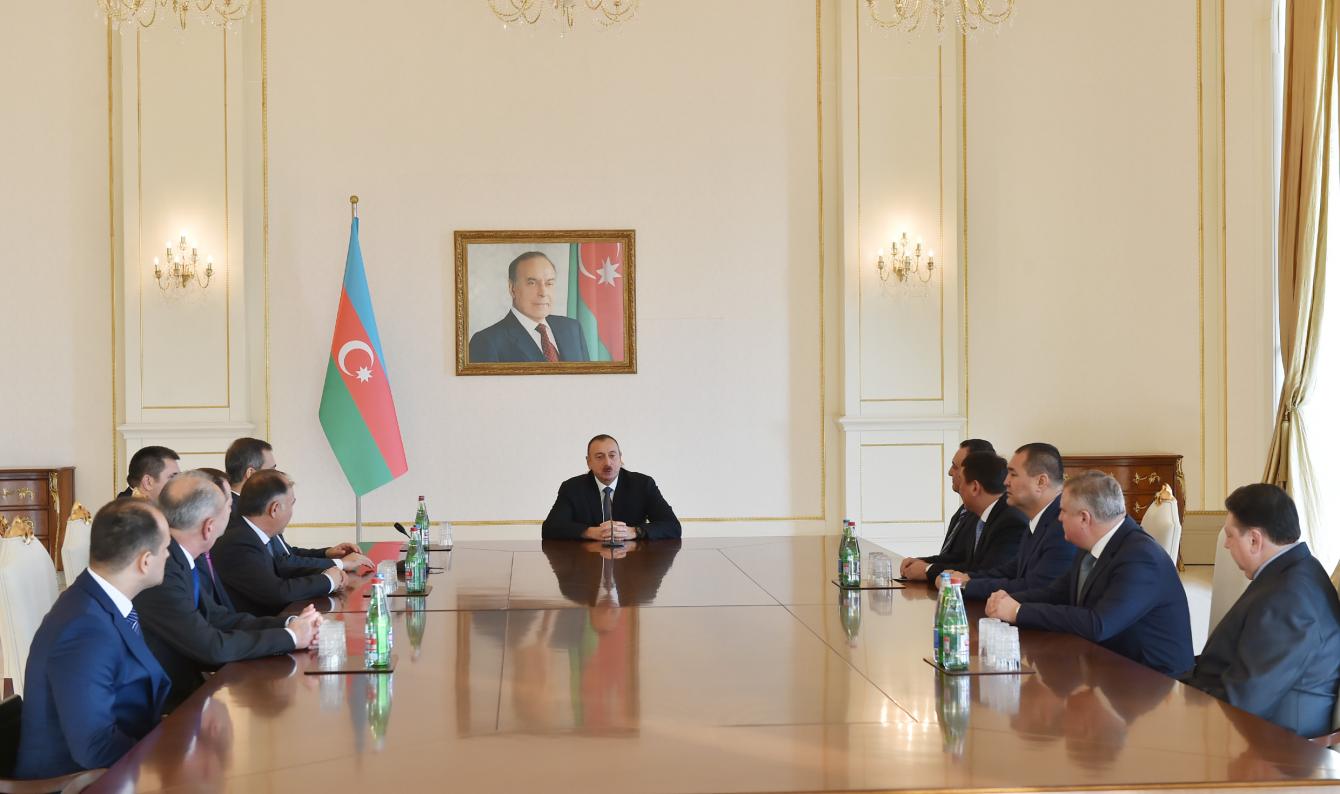
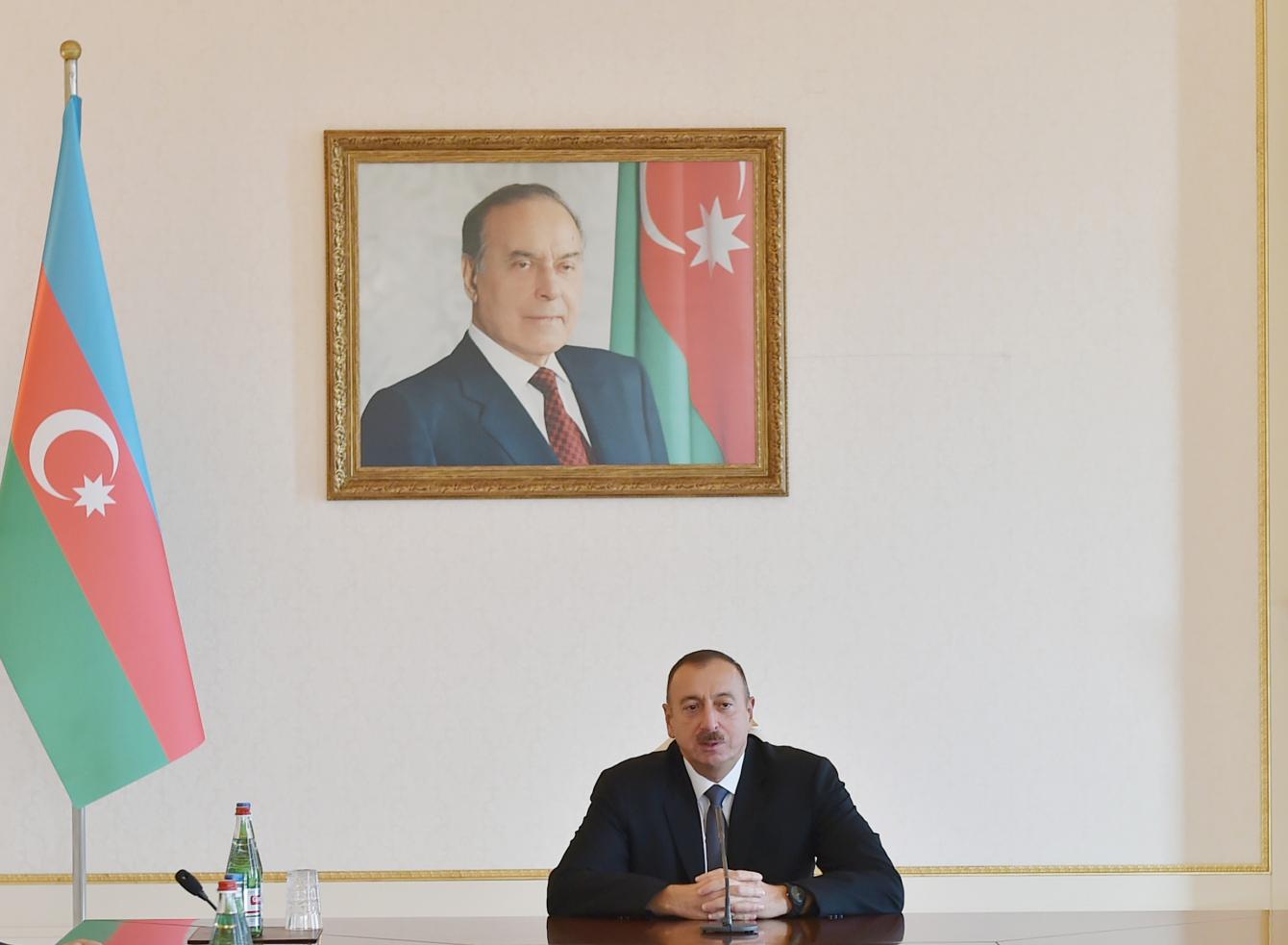
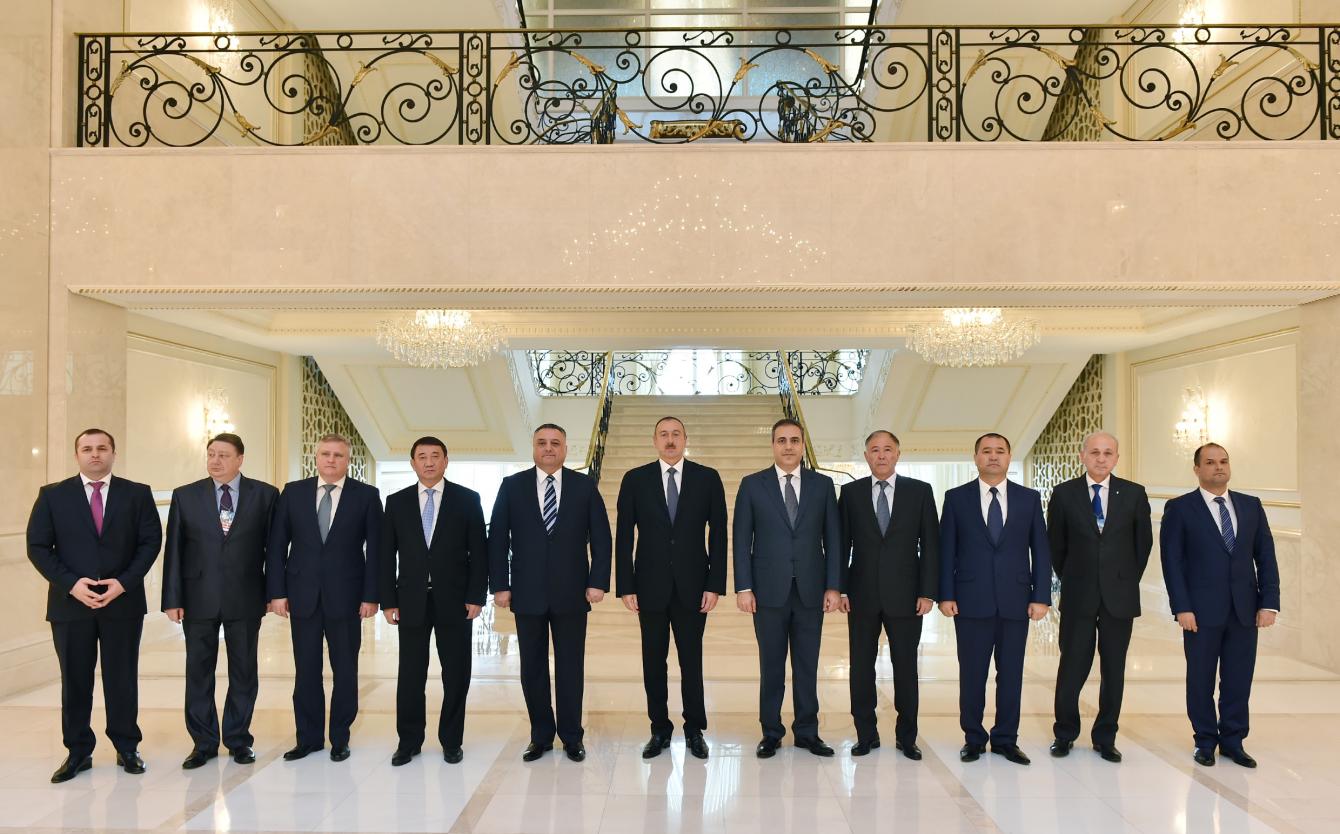

Aleksandar Vučić, President of the Republic of Serbia, made a phone call to the President of the Republic of Azerbaijan Ilham Aliyev, on April 16, briefing him on the pressures Serbia has been encountering recently and requesting the support of the friendly...
16 April 2024, 20:36Dear Mr. Pellegrini,
I sincerely congratulate you on your election as the President of the Slovak Republic.
The development of friendly relations with Slovakia holds great significance for us. Currently, there are good opportunities for enriching the...
15 April 2024, 13:06Prime Minister Muhammad Shehbaz Sharif of the Islamic Republic of Pakistan made a phone call to President Ilham Aliyev of the Republic of Azerbaijan on April 9.
Pakistan's Prime Minister congratulated the head of state on the occasion of Eid al-Fitr and wished...
09 April 2024, 19:52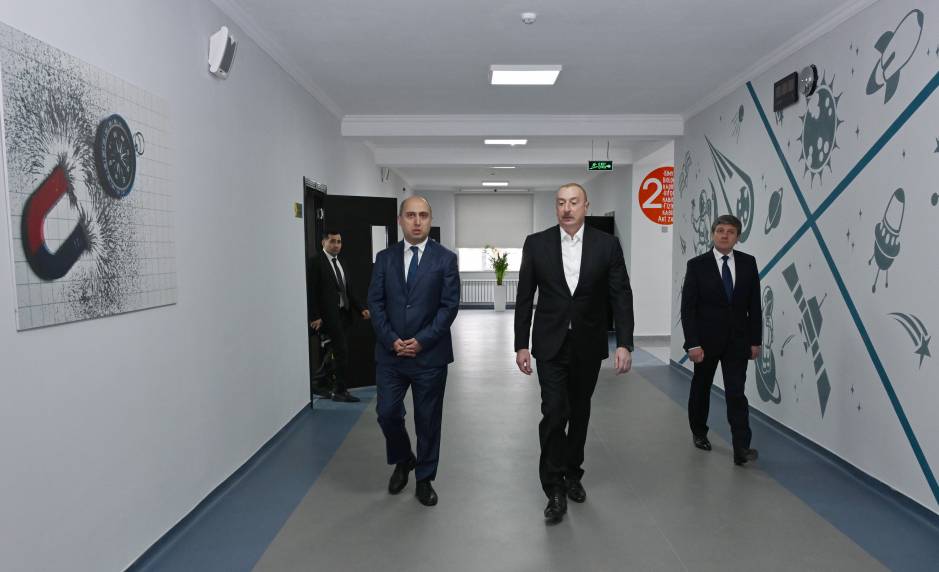
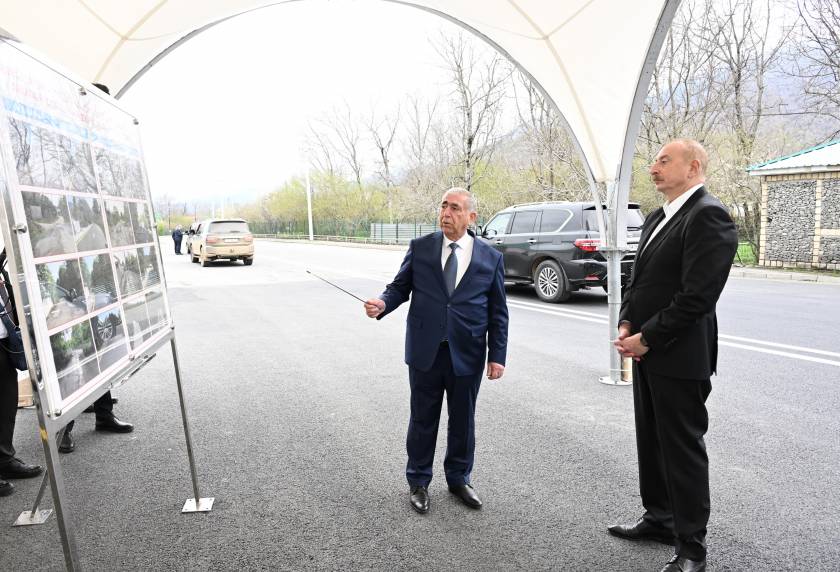
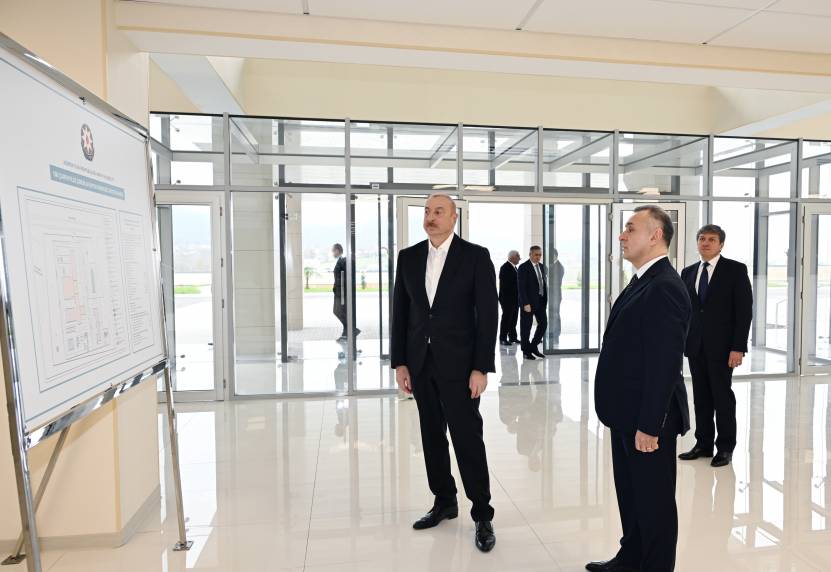
On April 9, President Recep Tayyip Erdogan of the Republic of Türkiye made a phone call to President Ilham Aliyev of the Republic of Azerbaijan.
The President of Türkiye congratulated President Ilham Aliyev on the occasion of Eid al-Fitr and wished the people of...
09 April 2024, 15:39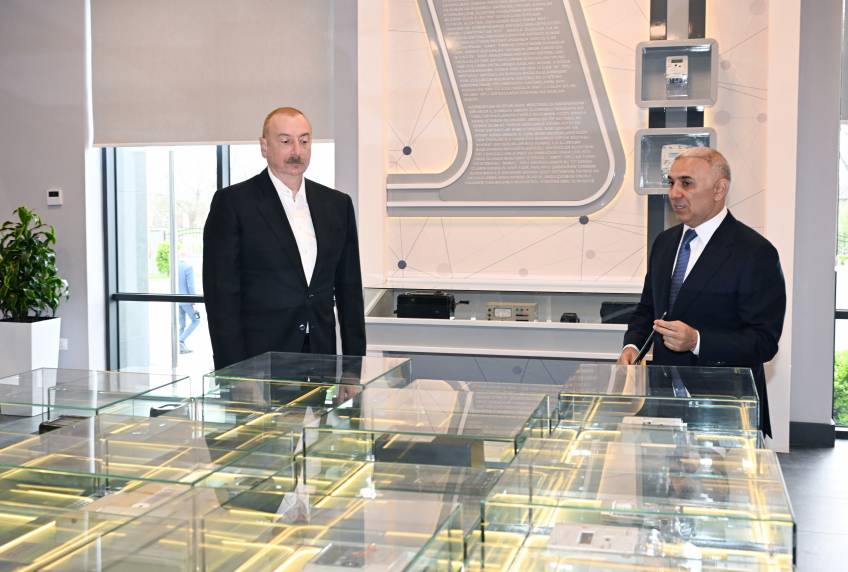
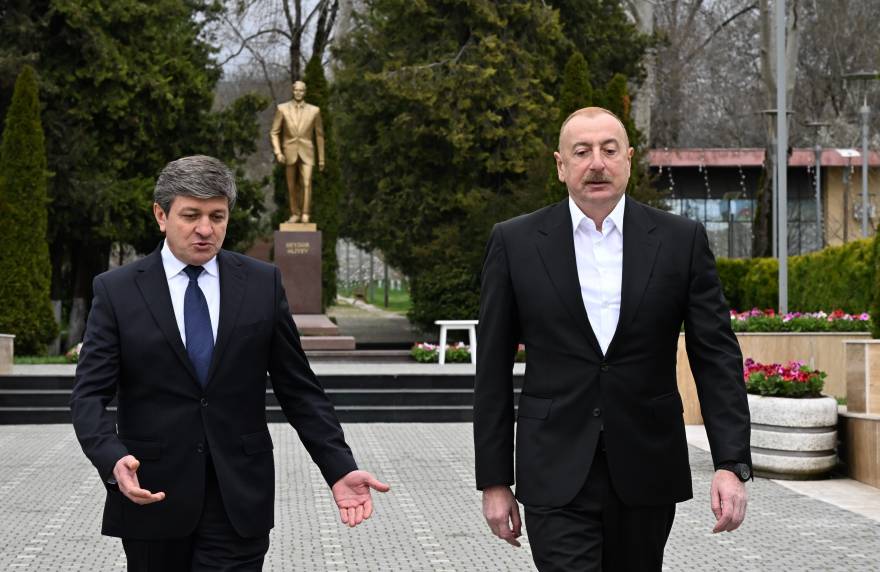
President of the Republic of Azerbaijan Ilham Aliyev has toured the Qabala district.
The head of state visited the monument to National Leader Heydar Aliyev erected in the city of Qabala and participated in the opening ceremonies of the 110/35/10 kV "Hajialili"...
09 April 2024, 15:14